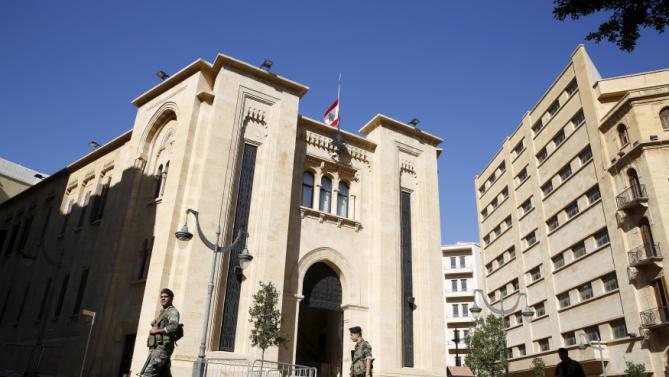
BEIRUT, Nov 13 (Reuters) – Lebanon’s parliament passed more financial laws on Friday to keep the politically paralysed country afloat, including a money laundering law.
The parliament held its first legislative session in a year on Thursday after pressure from international bodies and the central bank. It permitted the government to borrow more in foreign currency and to release around $3 billion of additional funds to cover spending in 2016 and pay public employees. The session continued on Friday.
Lebanon, which hosts more than a million refugees from the Syrian war, risks losing millions of dollars in World Bank development loans which parliament needs to approve by year-end.
"Lebanon proved, by approving these laws, its commitment to the standards set by (international) agreements, specially in regard to the measures related to (combatting) money laundering and funding and fighting terrorism," Finance Minister Ali Hassan Khalil told Reuters.
Lebanon is among the most heavily indebted countries in the world, with an overall debt ratio to gross domestic product (GDP) of around 140 percent.
On Friday it approved laws on issues including trans-border cash movements, cooperation to fight tax evasion and measures intended to cut off resources used for terrorism.
The country has been without a budget since 2005.
Politics has long been complicated by competition between regional powers who have a decisive influence over rival Lebanese factions.
The current barely-functioning unity government headed by Prime Minister Tammam Salam includes both Hezbollah, which is backed by Iran, and Saad al-Hariri’s Future Movement, backed by Tehran’s regional rival Saudi Arabia. Iran and Saudi Arabia also back opposing sides in the Syrian war. (Reporting by Laila Bassam; Writing by Mariam Karouny; Editing by Ruth Pitchford)



